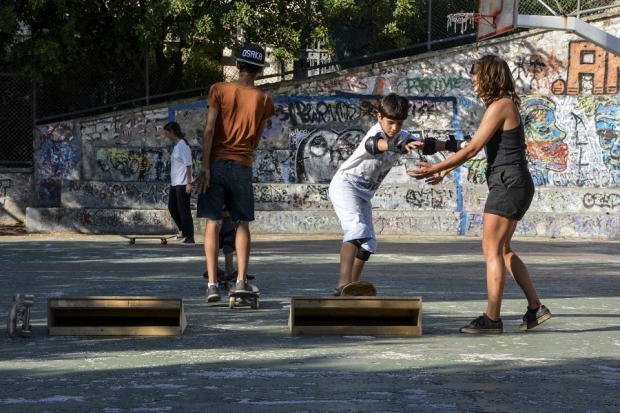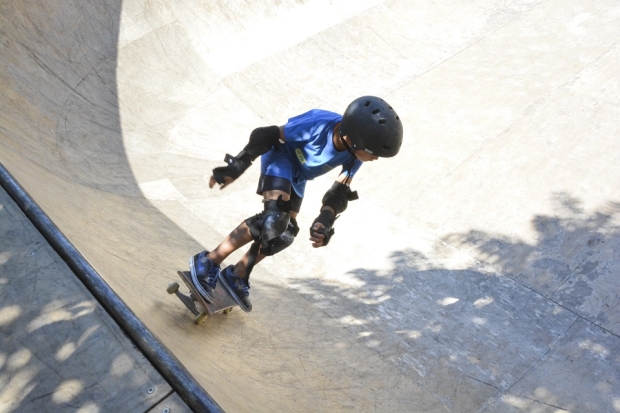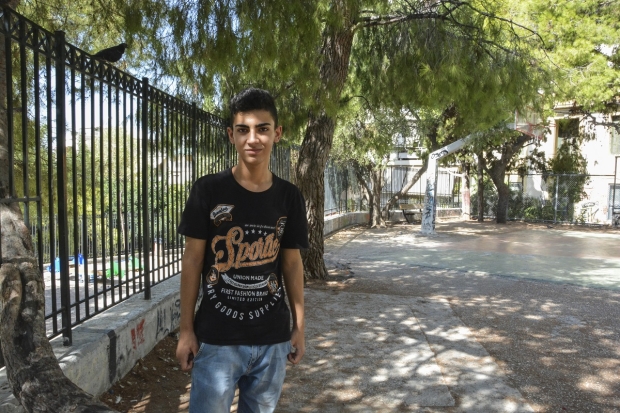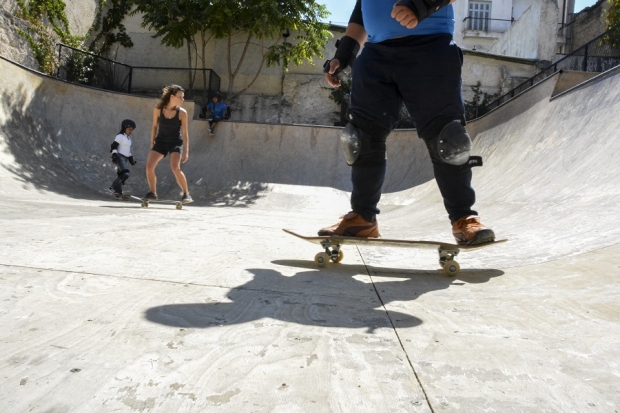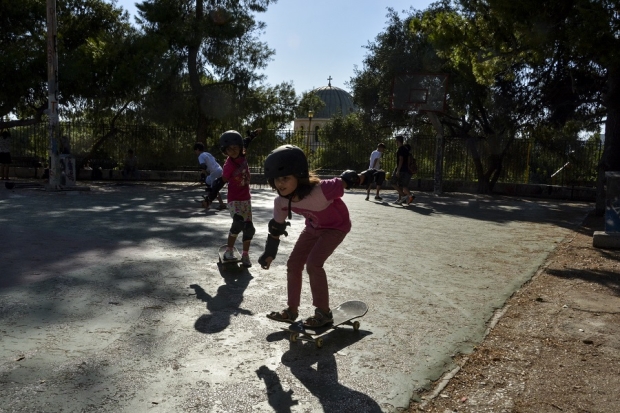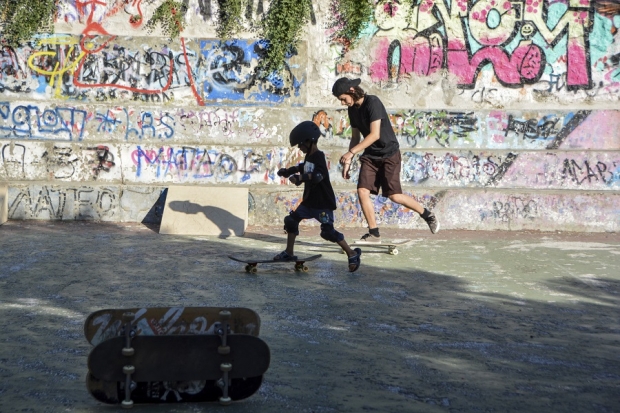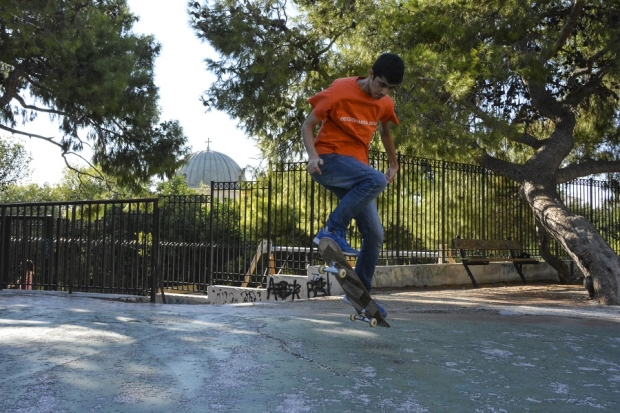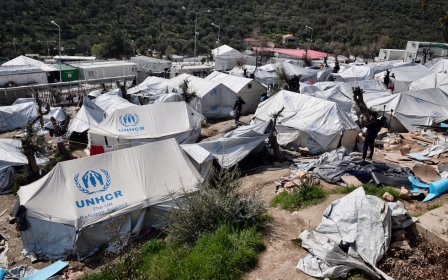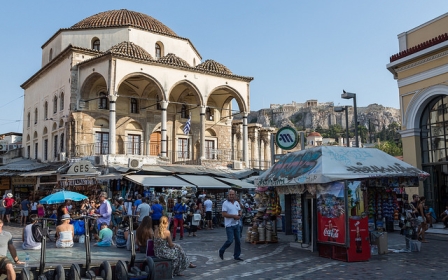Skate expectations: How Athens' child refugees find freedom on wheels

ATHENS, Greece – The scorching sun has kept most people off the near-empty streets of Athens on a Wednesday.
Yet at the foot of Mount Lycabettus lies a park where the sounds of small polyurethane wheels hitting cement ground emanate out of a small open basketball court, as a chorus of singing cicada vibrate in the background like back-up vocalists.
Welcome to the weekly skateboarding lesson for refugees living inside neighbourhood squats.
“Every week we wait for the lesson and when we see them we run to start skateboarding," says 12-year-old Resa from Syria, who is a resident of a nearby refugee camp.
As young refugees, escaping the routine of their challenging lives is something they all look forward to. "I feel happy when I skateboard," says Mohammad, a 15-year-old Syrian boy from Damascus.
“My life at home is good, but a bit difficult. I prefer to go outside and learn things," he said.
“I like it so much," he says. "You play with your friends and other people from different nationalities and cultures, and you can meet new friends."
“Today we have a total of 210 people signed up to the sessions, most of them between six and 18-years-old, 77 of whom are girls," says Ruby Mateja, co-founder of Free Movement Skateboarding.
“At first I felt scared, but not anymore,” says Atena, a 12-year-old girl from Afghanistan who has been living with her family in a nearby camp for over a year.
“When I’m on the street with the skateboard, I feel like I’m flying,” says Atena.
“I am learning very fast,” says 12-year-old Resa from Syria, who has been practising for a month.
The children's parents encourage them to go out and skateboard as well.
At first I felt scared, but not anymore
- Atena, a 12-year-old girl from Afghanistan
“My mum likes very much to see me skateboarding because it makes me and my sister happy. She likes it when we go outside of the camp to skate in the city,” admits Resa.
Some sessions are held inside the camps, while others are held in public spaces like parks and basketball courts in Athens.
A break from reality
Around 62,000 refugees and migrants, mainly Syrians, Afghans and Iraqis, heading to northern Europe have been stranded in Greece since European countries closed their borders in March last year. Most live in overcrowded camps.
According to UNHCR, so far in 2017 more than 18,000 have arrived on Greek shores.
According to Mateja, the skateboarding sessions draw in children of different nationalities, including Greek.
“It’s amazing how everyone is getting together," she adds.
How it started
Founded in April 2017, Free Movement Skateboarding started when British skateboarders Will Ascott and Mateja decided to help children living in refugee camps and self-organised squats in Athens.
Mateja recalls how the pair met in Palestine in October 2016 while each volunteering to teach young Palestinians how to skateboard for the charity SkatePal, a British non-profit organisation that aims to enhance the lives of young Palestinians through skateboarding, while building a strong skateboarding community.
“We were loosely talking about it once we were there, but I didn’t really entertain the idea that it could be a possible thing," says Mateja.
Ascott returned to the UK and, along with Mateja and Benji Sowter - another British skateboarder and also a friend of Ascott - started planning and organising the project. Meanwhile, the British charity Help Refugees agreed to fund the team for a year and turn the project into a reality.
Arriving in Athens, they bought wood with some of the money they were able to raise and built their own wooden skateboarding ramps in their rented apartment.
Soon afterwards, they hit the road, visiting camp after camp across Athens and teaching kids how to skateboard.
On the horizon
When the project began, FMS had 50 skateboards, helmets and sets of pads, most of which were secondhand donations. Today they have given most of them away to the children. As numbers gradually rise, there is an immediate demand for equipment.
To help with funding, FMS will launch a line of skateboard designs and T-shirts in October. Some of their prodcuts will be given away to the children, while others will be sold online to raise funds.
Now that winter is near, they are looking for a sheltered space, to avoid postponing the sessions due to bad weather.
If something like that happened, it would be devastating for the kids. “I feel good when I’m skateboarding. I like to learn many things and I don’t want to stop,” says Atena.
Stay informed with MEE's newsletters
Sign up to get the latest alerts, insights and analysis, starting with Turkey Unpacked
Middle East Eye delivers independent and unrivalled coverage and analysis of the Middle East, North Africa and beyond. To learn more about republishing this content and the associated fees, please fill out this form. More about MEE can be found here.


